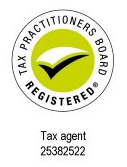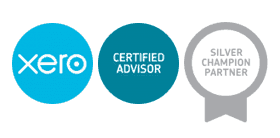Are you expecting a bigger tax bill this year due to a capital gain or additional income that you have not paid tax on? By making a personal super contribution and claiming the amount as a tax deduction, you may be able to pay less tax and invest more in super. This is a great strategy to power up your retirement savings if you have the cash available.
How does the strategy work?
If you make a personal super contribution, you may be able to claim the contribution as a tax deduction and reduce your assessable income.
The contribution will generally be taxed in the fund at the concessional rate of up to 15%¹, instead of your marginal tax rate which could be up to 47%².
Depending on your circumstances, this strategy could result in a tax saving of up to 32% and enable you to increase your super.
How do you claim the deduction?
To be eligible to claim the super contribution as a tax deduction, you need to submit a valid ‘Notice of Intent’ form. You will also need to receive an acknowledgement from the super fund before you complete your tax return, start a pension or withdraw or rollover money from the fund to which you made your personal contribution.
Make sure you can utilise the deduction
It is generally not tax-effective to claim a tax deduction for an amount that reduces your assessable income below the threshold at which the 19% marginal tax rate is payable. This is because you would end up paying more tax on the super contribution than you would save from claiming the deduction.
Other key considerations
- Personal deductible contributions count towards the ‘concessional contribution’ cap (which is $27,500 in 2021/22) and tax penalties apply if you exceed the cap.
- You can’t access super until you meet certain conditions.
- If you are an employee, another way you may be able to grow your super tax-effectively is to make salary sacrifice contributions (see opposite page).
- If you did not use up your concessional contribution cap in 2018/19 or 2020/21 and meet certain conditions, you may be eligible to carry forward the unused cap amount. This could enable you to make concessional contributions exceeding the annual cap in 2021/22 or future financial years.
¹ If your income plus any concessional (before-tax) super contributions totals more than $250,000 in a particular financial year, you are liable for Division 293 tax of 15% on the amount of concessional contributions above this threshold. Where your income excluding your concessional contributions is under the $250,000 threshold (in 2021–22), but your concessional contributions push you over the limit, the extra 15% tax is only applied to the concessional contributions exceeding the threshold.
² Includes Medicare Levy.
3 Unused cap amounts can be carried forward for up to five years. Other conditions apply.
If you need help with your tax and accounting requirements get in touch with Sumz Plus Business Services.









